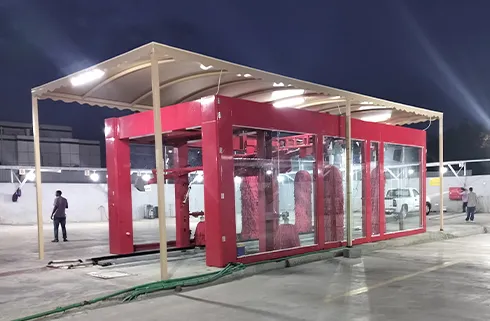
- Afrikaans
- Albanian
- Amharic
- Arabic
- Armenian
- Azerbaijani
- Basque
- Belarusian
- Bengali
- Bosnian
- Bulgarian
- Catalan
- Cebuano
- Corsican
- Croatian
- Czech
- Danish
- Dutch
- English
- Esperanto
- Estonian
- Finnish
- French
- Frisian
- Galician
- Georgian
- German
- Greek
- Gujarati
- Haitian Creole
- hausa
- hawaiian
- Hebrew
- Hindi
- Miao
- Hungarian
- Icelandic
- igbo
- Indonesian
- irish
- Italian
- Japanese
- Javanese
- Kannada
- kazakh
- Khmer
- Rwandese
- Korean
- Kurdish
- Kyrgyz
- Lao
- Latin
- Latvian
- Lithuanian
- Luxembourgish
- Macedonian
- Malgashi
- Malay
- Malayalam
- Maltese
- Maori
- Marathi
- Mongolian
- Myanmar
- Nepali
- Norwegian
- Norwegian
- Occitan
- Pashto
- Persian
- Polish
- Portuguese
- Punjabi
- Romanian
- Russian
- Samoan
- Scottish Gaelic
- Serbian
- Sesotho
- Shona
- Sindhi
- Sinhala
- Slovak
- Slovenian
- Somali
- Spanish
- Sundanese
- Swahili
- Swedish
- Tagalog
- Tajik
- Tamil
- Tatar
- Telugu
- Thai
- Turkish
- Turkmen
- Ukrainian
- Urdu
- Uighur
- Uzbek
- Vietnamese
- Welsh
- Bantu
- Yiddish
- Yoruba
Essential Equipment for Efficient Commercial Car Wash Operations and Maintenance
The Evolution and Importance of Commercial Car Wash Equipment
In today’s fast-paced world, where convenience and efficiency reign supreme, the commercial car wash industry has experienced exponential growth. A critical factor behind this development is the advancement in commercial car wash equipment. Modern equipment not only enhances the washing process but also elevates the overall customer experience, making it a paramount consideration for any car wash business.
Understanding Commercial Car Wash Equipment
Commercial car wash equipment encompasses a wide range of machines and tools designed specifically for the cleaning and detailing of vehicles in a commercial setting. This includes automatic car wash systems, pressure washers, brushes, drying systems, and water reclaim systems, among other specialized tools. Each piece of equipment plays a specific role in ensuring that vehicles are cleaned efficiently and effectively, attracting more customers in the process.
Types of Equipment and Their Functions
1. Automatic Car Wash Systems These sophisticated machines can wash hundreds of vehicles daily with minimal labor input. They utilize various technologies—such as touchless washing systems that use high-pressure water jets, or soft-touch systems employing foam brushes—to cater to different cleaning needs while ensuring a gentle approach to the vehicle’s surface.
2. Pressure Washers These are indispensable tools in the car wash arsenal. High-pressure water jets can cut through dirt and grime that is otherwise stubborn to remove. Portable models allow for flexibility, while stationary systems integrated into the wash line provide a powerful cleaning option for larger washes.
3. Water Reclaim Systems With increasing environmental regulations and the growing emphasis on sustainability, water reclamation has become critical in commercial car washes. These systems capture and filter wastewater, recycling it for future use. This not only conserves water but significantly reduces operational costs, aligning with eco-friendly practices that attract environmentally conscious customers.
commercial carwash equipment

4. Drying Systems After washing, the drying process is essential to leave a streak-free finish. Advanced drying systems, often equipped with high-velocity air dryers, minimize water spots and improve the overall look of the vehicle post-wash. Efficient drying equipment speeds up the process, allowing for more customers to be serviced in a shorter time.
The Technological Revolution
The emergence of technology has transformed car wash equipment dramatically. Digital monitoring systems now track the wash process, customer interactions, and equipment maintenance. This analytics-driven approach helps operators optimize resource use and improve service quality. Additionally, mobile apps enable customers to schedule and pay for washes, enhancing convenience and customer satisfaction.
The Business Advantage
Investing in high-quality commercial car wash equipment not only boosts operational efficiency but also serves as a marketing tool. A clean and well-maintained environment, coupled with advanced technology, projects professionalism and reliability, attracting more customers. Furthermore, as competition intensifies, offering superior service through cutting-edge equipment can set a business apart.
Conclusion
In conclusion, commercial car wash equipment is at the forefront of a rapidly evolving industry. The right machines and technology not only streamline the cleaning process but also enhance the customer experience, leading to increased satisfaction and loyalty. As environmental consciousness grows, so does the importance of water management systems. For entrepreneurs in the car wash sector, investing in top-tier equipment is not merely a choice—it’s a necessity for success in the modern market. The future of car washing is bright, backed by innovation and customer-centric practices, making the industry an exciting realm for both entrepreneurs and consumers alike.
-
Integrating Aqua Tunnel Car Wash in Shopping CentersNewsJun.24,2025
-
Gas Station with an Auto Car Wash MachineNewsJun.24,2025
-
Efficiency in Your Aqua Tunnel Car Wash: Power & Water-SavingNewsJun.24,2025
-
Car Wash Business with Advanced Auto Car Cleaning MachinesNewsJun.24,2025
-
Balancing Setup Costs with Aqua Tunnel Car WashNewsJun.24,2025
-
Aqua Tunnel Car Wash: Eco-Design for the Energy-Savvy EntrepreneurNewsJun.24,2025



